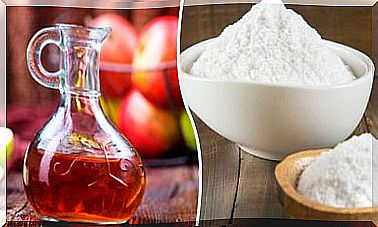Nutritional Benefits Of Celery For Health
In many preparations, celery is a recurring ingredient. It helps to enhance the flavor of food, to achieve much more palatable results and also to introduce more green into our dishes. Now, what are the nutritional benefits of celery?
It is a low-energy vegetable, as is also the case with cucumbers. It only contains 16 calories and 0.2 grams of fat. On the other hand, this vegetable is rich in water and, therefore, very refreshing. Especially when eaten raw.
Since it is very versatile, it can be enjoyed in various ways, such as an aperitif, in salads, smoothies and many other preparations, such as soups or stews, etc.
What are the nutrients in celery?
A cup of celery provides:
- 9% of the RDA for vitamin A.
- 3.4% of the recommended daily dose of vitamin B2.
- Almost 4% of the RDA for vitamin B6.
- 9% of the recommended daily value of vitamin B9.
- 5.2% of the recommended daily dose of vitamin C.
- 37% of the recommended daily value of vitamin K.
- 7.5% of the RDA for potassium.
- 5.2% of the RDA for manganese.
- 4% of the RDA for calcium.
Additionally, each serving of raw celery contains 1.8 g of dietary fiber. It should also be noted that celery is a food that contains flavonoids, such as apigenin and luteolin, which help maintain the health of all organs and systems of the body.
Of course, remember that the ideal is to have healthy habits on a daily basis, such as exercising, following a balanced and healthy diet, leaving behind harmful habits such as tobacco and alcohol consumption.

Health benefits of celery
In summary, the main benefits of celery are:
- Celery is a food with a high content of water and mineral salts, but with a low energy content; For this reason, it is a food that can be used in light and refreshing preparations.
- Due to this water content, it has generally been used in traditional medicine as a diuretic or antihypertensive agent. It contains chemical compounds such as apiin, apigenin, isoquercitrin, and sesquiterpene.
- Since it contains potassium, it is a food that can be used both before and after exercising. According to the Spanish Heart Foundation, potassium is a nutrient that, in addition to participating in the water balance and acid-base balance, contributes to muscle contractibility, the transmission of nerve impulses, and the maintenance of normal blood pressure.
- Being rich in water and fiber, celery can help with bowel function, so it could be beneficial in avoiding problems such as constipation. Of course, in order to obtain this benefit, it is essential to accompany the consumption of celery with other foods rich in fiber, as well as good hydration, among other factors.
Despite all the nutritional benefits of celery mentioned, it is not advisable to base your diet solely on this food. The ideal is to maintain a balanced diet and, when in doubt, consult your doctor before making changes.
In addition, in the event that a medical condition is being treated, the doctor or nutritionist should be consulted before incorporating it into the diet, in case it has any adverse effect.
eye! As in the case of Swiss chard, celery is a food that contains oxalates. Therefore, they are not recommended for people suffering from kidney disease, high uric acid, or bladder infections. If this is your case, consult a doctor before including these foods in your diet.









